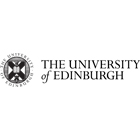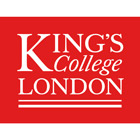- News and articles
- Events
- Find usIDP AustraliaIDP BahrainIDP BangladeshIDP CambodiaIDP CanadaIDP ChinaIDP EgyptIDP GhanaIDP IndiaIDP IndonesiaIDP IranIDP JordanIDP KenyaIDP KoreaIDP KuwaitIDP LebanonIDP MalaysiaIDP MauritiusIDP Middle EastIDP NepalIDP New ZealandIDP NigeriaIDP OmanIDP PakistanIDP PhilippinesIDP Saudi ArabiaIDP SingaporeIDP Sri LankaIDP Taiwan, ChinaIDP ThailandIDP TurkeyIDP UAEIDP VietnamIDP Corporate
- Social
- English
The United Kingdom, with its rich history, vibrant culture, and world-renowned educational institutions, stands as a prime destination for international students seeking a world-class education and a truly unique experience. Every year, thousands of students from around the globe choose the UK as their study destination, and for good reason.
A hub of excellence
The UK is home to some of the world's greatest cities, each with its own distinctive charm and cultural offerings. From the historic streets of Oxford and Cambridge to the bustling multicultural vibe of London, the UK offers a diverse array of environments for students to explore. This cultural diversity is not just limited to cities but also permeates through its educational institutions, making it a truly global learning experience.
Educational opportunities
The UK boasts a reputation for academic excellence that extends far beyond its borders. Its universities consistently rank among the top in global university rankings, offering a wide range of programs and courses to suit every academic interest. The teaching methodology emphasizes critical thinking, creativity, and independent learning, preparing students for success in their careers and personal lives.
Economic and professional benefits
Studying in the UK can lead to significant economic and professional advantages. Many courses in the UK are more intensive and shorter in duration than in other countries. This means that students can complete their degrees in a shorter time frame, saving on both tuition fees and living expenses. Additionally, the UK's strong ties to various industries provide ample opportunities for internships, work placements, and networking, which can give students a competitive edge in the job market.
Financial support and benefits
The UK understands the financial challenges that students may face. Many institutions offer scholarships and bursaries to international students based on merit, need, or both. Moreover, numerous programs provide students with access to discounts on various services, low-cost public transportation options, and affordable study materials. This support ensures that students can focus on their studies without undue financial stress.
Cultural enrichment
Studying in the UK is not just about academics; it's also an opportunity for cultural enrichment. The country's rich history and diverse population create an environment where students can learn from their peers and explore new perspectives. The UK's numerous cultural attractions, museums, galleries, and theaters provide endless opportunities for exploration and engagement.
Global connections
The UK's reputation as an international education hub attracts students from all corners of the world. This diversity creates a vibrant and dynamic campus environment where students can build lasting friendships and connections with people from different backgrounds and cultures. These global connections can be invaluable in fostering a broader worldview and expanding one's horizons.
Post-study opportunities
Completing a degree in the UK opens doors to various post-study opportunities. The UK offers a variety of options for international graduates, including the Graduate Route, which allows students to work or seek employment for up to two years after completing their studies. This practical experience can enhance employability and potentially lead to settlement options in the UK.
In conclusion, choosing to study in the United Kingdom is a decision that offers an unparalleled blend of academic excellence, cultural diversity, professional prospects, and personal growth. With its historic institutions, global connections, and array of benefits for international students, the UK remains an ideal destination for those seeking not only an education but also an enriching life experience.





Education System in UK
UK Universities
UK university degrees are globally recognized and respected, attracting tens of thousands of students each year. In UK, there are over 100 universities, offering a much wider range of subjects than Hong Kong. With range of degrees available, students can study their preferred subjects without compromise, greatly enhances the motivation to study!
For students: Form 5 (Year 11) students or above
Annual expenses: Approximately HKD 170,000 - 490,000
UK Colleges
These institutions aim to prepare students for university and employment. The learning style is similar to universities, offering students greater freedom and helping develop independence and initiative, making university transition easier. Many UK colleges achieve excellent academic results and help students enter prestigious universities!
With the aim of preparing students for university and employment, UK colleges provides education and learning more similar to that of a university, offering students more freedom and develop them to be independent and be initiative, to adapt better when they go university. Many UK colleges often help students to achieve very good academic results to enter prestigious universities!
For students: Form 4 (Year 10) students or above
Annual expenses: Approximately HKD 150,000 - 630,000
UK Boarding Schools
Boarding schools in UK have a long history and are world-renowned for their strict ethos and academic excellence, attracting tens of thousands of international students annually. With abundant university places available, boarding school graduates have a nearly 100% university acceptance rate, securing the pathway to quality universities!
For students: Primary and secondary school students
Annual expenses: Approximately HKD 290,000 - 530,000
UK Study Programmes
GCE A-Level Programme
Duration: Two years (Year 12-13)
Entry requirements: Hong Kong students must complete Form 5, and assessed based on school academic results
Subjects: Student can choose subjects based on interests, past academic performance, and of university course requirements, including GCSE subjects and others (like geology, sports science). No restriction between arts or science streams. You may reach out to UK study consultants for assistance with selection.
Since 2015, AS-Level and A-Level have been spli into independent qualifications, with AS results are not counted in A-Level total scores. Students typically study 3-4 subjects and take A-Level exams in Year 13.
A-Level results are the primary assessment criteria for UK university applications. Some schools may require AS-Level exams in Year 12 for self-assessment purposes.
Besides enrolling into university, students whose results fall short of requirements can choose other UK higher education courses. Some private institutions offer 1-year Fast Track A-Level courses with intensive teaching.
UK Secondary School Courses
Duration: Two years
Entry requirements: Hong Kong students must complete Form 3, and be assess based on school academic results
Subjects: Students study 7-10 subjects; UK secondary schools don't restrict students from studying both arts and science subjects. Besides required English, Mathematics and Science, students have to select 4-5 additional subjects like Art & Design and Tourism
Students entering UK secondary schools (around age 14) must complete a two-year GCSE course and take GCSE exams at age 16 to graduate. If they meet the required standards, students can pursue a two-year GCE A-Level programme or enrol in a one-year Foundation Programme, another popular choice for UK education.
UK Foundation Programme and International Year One
Duration:
Foundation Programme: Typically 0.5 to 1 year
International Year One: 1 year
Entry Requirements:
Foundation Programme Hong Kong students must complete Form 5 and be at least 17 years old, using school grades for application. If the student’s English proficiency does not meet the requirement, they must first take English classes.
International Year One: Hong Kong students need to complete the Diploma of Secondary Education (DSE) or an equivalent qualification, depending on the specific university and course requirements.
UK University DSE Admission Requirements
Academic Requirements for DSE Students
Students must demonstrate the ability to handle English-medium classes, and be assess through public exam results or university foundation course grades.
DSE Grade Requirements (excluding Chinese and Liberal Studies):
Oxford/Cambridge: As top UK universities, their assessment criteria is broader and higher. Besides the minimum requirement of "555", the institution swill also consider the student's performance in extracurricular activities, leadership abilities, and interview.
Top 30 UK Universities: Require at least "544" in 3 elective subjects (excluding Chinese and Liberal Studies); some specialized programmes have higher requirements
Other UK Universities: Generally require "all 4s" or above
Study abroad in UK: 3 Important Steps After DSE and University Application Timeline
Many students and parents will ask: Is it too late to study in the UK after DSE results? It depends on your situation.
Often, participating in UCAS Clearing provides alternative to have more runway when time is little. (see diagram above).
UCAS Clearing happens after UK universities release remaining seats and the applicants have accepted their offers. By July, prestigious UK universities are often filled.
If you are not confident with DSE grades to meet university criteria (before getting results), early planning and university application is highly recommended because while you are planning popular foundation courses or International Year One programmes to attend, other prudent parents will often secure these courses as a backup plan for their children, resulting the programmes and the choices filling up quickly.
After DSE grades release, there are 3 crucial steps for both students and parents to know
1. Choose Subjects and Schools, Seek Study Consultation (May-July before results)
Course and school choices shape your future studies. Higher-ranked schools have their advantages but students also face stronger competition. A high university ranking also doesn't mean all disciplines and programmes are the best. Students and parents should consider both overall and subject rankings, along with student interests and abilities.
In IDP Education, students can not only highlight their interest to our UK study consultants on their preferred courses and discipline, but also assess suitability, and receive one-on-one advice on school and course selection. IDP holds large education exhibitions and seminars annually. Students and parents should research thoroughly before DSE results and make immediate decisions after receiving grades.
2. Take IELTS Test (Immediately)
Studying in UK requires IELTS scores to prove sufficient English proficiency. UK Universities generally require overall IELTS 6.0+, foundation courses 5.0+, and some top universities have higher requirements.
IELTS is required for UK student visa applications. To start next September, students are recommended to prepare in two ways.
If DSE results or English language levels are unsatisfactory, or unable meeting preferred courses with higher requirements, students can enrol in foundation courses, including English language, core modules (study skills), and professional subjects. Upon the completion of the programmes (9-11 months), students can apply to UK universities with foundation course results.
3. Apply to Desired Schools (June-July after results)
If you're not confident about DSE results or have decided on UK study, consult our study counsellors and apply quickly as renowned universities and popular courses fills up quickly in June-July.
If you have missed the university application, 7 days after DSE results released are especially crucial for university application. Prepare DSE results, valid passport, and IELTS scores, and book consultation appointments as soon as possible. For foundation courses, study consultants can assess applications on-site, and securing enrolments after the registration payment and deposits.
Can I still apply for foundation courses without meeting minimum DSE requirements?
Each application undergoes holistic evaulatiion. Some students with most grades 1 and U have entered foundation courses and later successfully progressed into renowned UK universities, demonstrating that determination and proper academic support can overcome initial grade challenges.
Top 20 UK Universities on THE University Rankings 2024-25
University Ranking | University Name |
1 | University of St Andrews |
7 | Durham University |
8 | University of Cambridge |
9 | University of Warwick |
10 | Loughborough University |
11 | University of Exeter |
12 | University of Glasgow |
13 | University of Edinburgh |
14 | Lancaster University |
15 | University of York |
16 | University of Bristol |
17 | University of Southampton |
18 | University of Sheffield |
19 | University of Aberdeen |
20 | University of Strathclyde |
More about THE University Rankings for 2024
Find out more about studying in the UK
Learn how you can get the best out of your UK study abroad plan with our study consultants. Or join our UK study fairs and seminars to chat with the university representatives on UK university campuses, subject choices, and admission criteria.
Explore in the United Kingdom
Hover over the city cards to discover more!
Top universities in the United Kingdom

Find your home away from home
We’ll help you discover student accommodation that makes you feel comfortable and at home, no matter where you are.

Send funds securely with money transfer
Explore safe, convenient and fast payment solutions with our market leading partners.
Cost of living calculator
Estimate how much you will need to cover your expenses including cost of living comparison for various country and accommodation options.
Can’t decide where to study?
Answer 5 quick questions to get personalised content and course recommendations

















